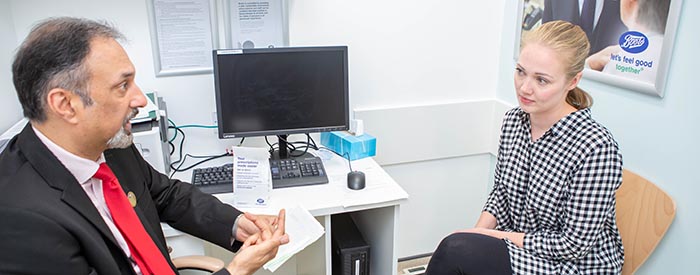Delivering patient-centred care through a ‘counsel culture’
Counselling and the provision of advice on medicines are traditional functions of the pharmacist; however, they remain the cornerstone of our profession, being the instruments to help improve medicines adherence, promote positive health outcomes and build relationships with patients. There are important future roles for pharmacists in medicines adherence and optimisation, and effective communication will enable patients to achieve the most benefit and safety from their therapy, whether this is obtained through a prescription or an over-the-counter purchase.
This month sees the launch of refreshed SOPs (in a digital format) on medicines counter consultations using The Boots Healthcare Way, the sale and supply of pet medicines, and conducting an in-store malaria prevention service consultation. A key theme throughout each of these SOPs is the need for appropriate counselling of the patient (or their caregiver), who should have the opportunity to discuss their medicines and understand why they are taking them and how they should be taken (or administered), which will help to increase medicines adherence and promote safety.
As you work with your team to implement these SOPs, it’s important to see beyond the process steps – critical as they are – and reflect on how your unique conversational skills as a pharmacy professional can transform the care of some of our most vulnerable patients, whose needs may not always be immediately obvious. The skilful delivery of clinical expertise and professional advice, as part of a compassionate and empathetic conversation, is highly impactful and enables you to make a meaningful difference to patients and their families.
It’s important that you and your team members deliver the necessary caring conversations confidently, using The Boots Healthcare Way. Please also check that your team members understand the legal restrictions on the sale of products containing ephedrine or pseudoephedrine as well as the medicines, which may be abused or misused, that are listed on the Care Card. In particular, please note the key safety messages that need to be provided when responding to requests for codeine-containing medicines. In larger stores, where there are healthcare-trained team members who normally work in other areas of the store as well as the healthcare counter, it’s imperative that they are trained on the relevant SOPs. For these team members, it’s important to check whether they need extra guidance when selling Pharmacy (P) medicines and children’s medicines.
The importance of a strong ‘counsel culture’ also extends to prescribed medication. You’ll be aware of the consequences of patients not taking medicines as prescribed, often leading to poor condition management and hospitalisations, with associated cost implications for the wider healthcare system. There have been a number of incidents recently that could have been avoided through a conversation with the patient, either at the point of prescription hand in or the handout of the dispensed medication. Please reflect upon the importance of counselling as a team and how you are taking a proactive role in this every day.

